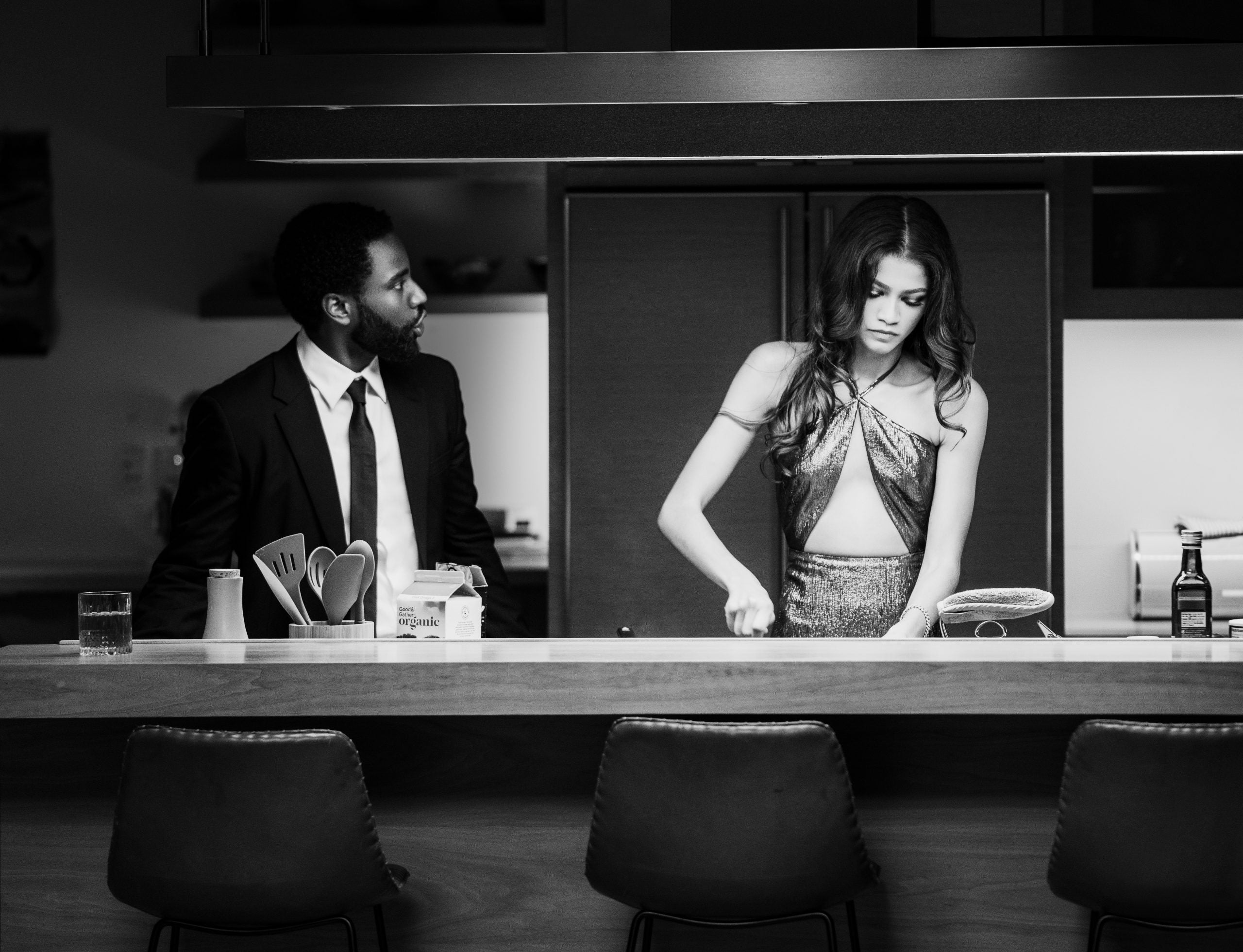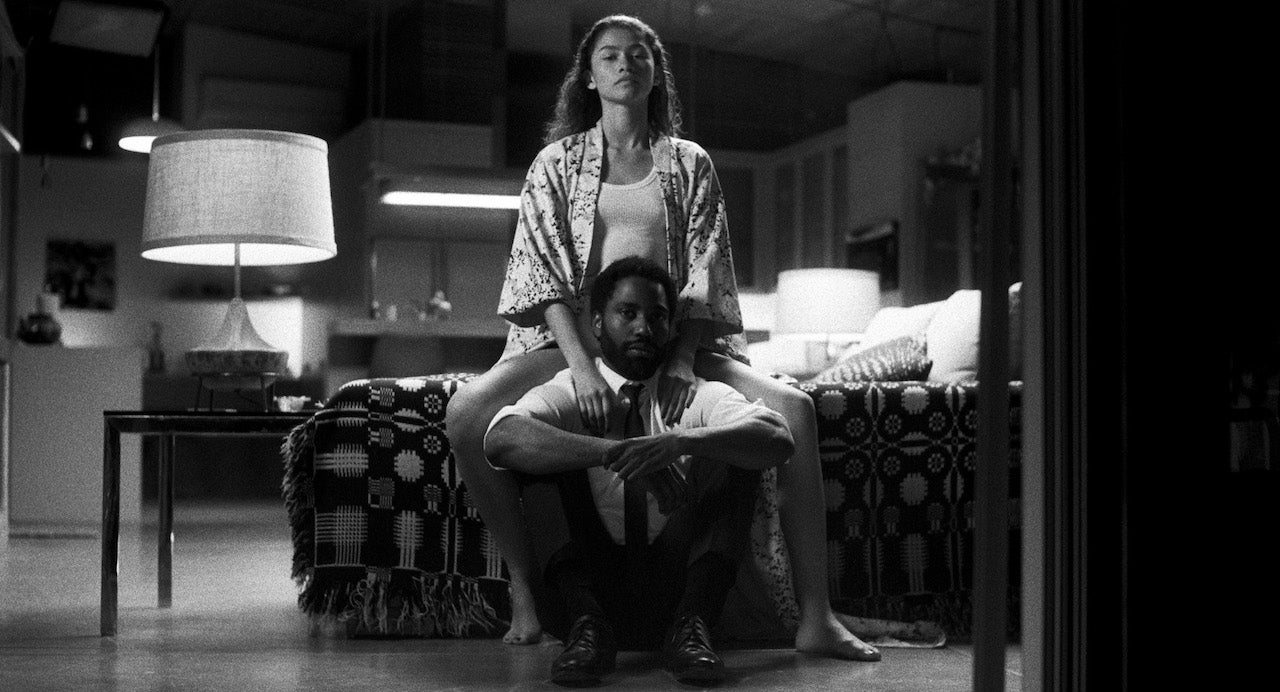“Men don’t cry” is, by far, one of the most toxic things one could say to a young man, especially a young Black boy. Within the Black community, discussions around mental health haven’t always been as open as they currently are among Gen Z.
I grew up in a household where depression was “treated” with hot tea, ginger ale, a few Bible scriptures, and a nap. While those home remedies were good to cure a headache and prepare for Sunday school the next week, none of the necessary mental health work was done. Unfortunately, for Black men, when they’re told to conceal rather than feel, those bottled up emotions can translate into anger, resentment, and violence that’s often transferred to their family, romantic partners, and even turned inward.
Though conversations around mental wellness are becoming less taboo, there is still a great deal of work to be done. Fortunately, movies like Malcolm & Marie, starring John David Washington and Zendaya, highlight the true beauty of a Black man’s vulnerability.

From the opening scene of the film, we see Washington’s Malcolm Elliott parading around happily to James Brown’s “Down and Out In New York City” as he literally screams his admiration for Marie’s beauty. As the movie continues, Malcolm’s rage, passion, anguish, sexual tension, excitement, and disappointment are all explored through his dialogue with Zendaya’s character. Though Malcolm seems manic at times — and what some would even deem as irrational – he was openly communicative with his partner.
For as long as I can remember, I was told to shy away from a man who’s “too sensitive,” “too emotional,” or “wears his heart on his sleeve” because “no woman wants to date a man who acts like a woman.” Ironically, these are all characteristics of healthy vulnerability – a trait that’s necessary for an emotionally stable relationship to flourish and one I welcome wholeheartedly. At first, I was taken aback by Malcolm’s character, not because I was turned off, but simply because I’d never seen the nuances of romance within a Black couple displayed in such a way before.
Oftentimes in cinematic features, particularly with Black male leads, we see traces of toxic masculinity in the absence of sensitivity. More specifically, the characters take on the likeness of the “sturdy oak,” a term psychologists and sociologists often use to refer to masculinity that displays as toughness, a lack of emotion, and a calm demeanor. Sam Levinson’s piece is an exploration of the humanization of a Black man while in a romantic union.

While Malcolm and Marie’s relationship is far from perfect, it is relatable. I saw myself and my relationship in Zendaya and Washington’s characters. Through their exchange of monologues, we learn the dangers of bottling up one’s emotions and how that can lead to regret, anger, resentment, and possibly even violence. We’ve been conditioned to believe that men, especially Black men, are to grow up to be study oaks, stripped of the ability to be swayed by emotion. This may allow a man to “secure his masculinity,” but it doesn’t make for a great romantic partner.
On the surface, Malcolm may appear complicated, or as Marie described him, “an emotional fucking terrorist,” but at the very least, he is a man who is not afraid to display his emotions. From the passion and affection for Marie’s sexuality and femininity to the anger and hastiness of devouring a bowl of Kraft Mac & Cheese, Malcolm is a man driven by emotion, which is both dangerous and admirable. There is no guessing game with Malcolm as we watch him ride through an emotional roller coaster of heated discussions with Marie. Though hurtful things are said, not once is there a question of how he feels.
We’ve all said things during an argument that we didn’t mean and we’ve also been on the receiving end of hurtful words. But nothing is more frustrating than the feeling of pulling a brick out of a cement wall when trying to understand your partner’s feelings. Malcolm & Marie peels back the layers on the true definition of romance by taking us on a journey that allows both characters to understand each other better through tears, laughs, sex, and pain. By stripping away the taboo of Black men being emotionally vulnerable, the movie creates a male protagonist who is sarcastic, witty, charming, loving, passionate, frustrating, and relatable to a fault. This movie is more than a dramatic romance, it’s a conversation starter about how mental wellness is equally tied to love and lust.